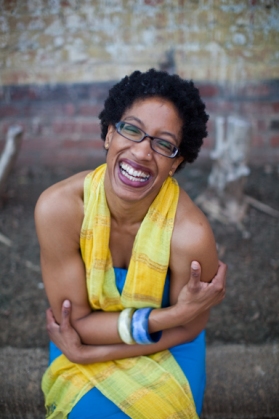Three articles in the media grabbed my attention since my last post. The morning after I posted, I received a link to an article in Private Lives, in The New York Times, from Greg Jones, President of Friends of Nigeria.

Enuma Okoro, author of Private Lives piece
Enuma Okoro, the author, is an Igbo woman who only lived in Nigeria briefly as a child. She says about her upbringing, “We were not raised to imagine ourselves as woven into the fabric of Nigeria, let alone as lovers of it.” She says for years she hardly thought about the country, only noticing news about the scams, the poor infrastructure, and then the terrorist group Boko Haram.
Yet when she went back to Nigeria to bury her father in his Igbo village, she found herself feeling more at home there than in the United States. She says, “I started to imagine what it would be like to live in a place where you did not have to explain some aspect of your identity on a daily basis.”
I am not an Igbo woman like Enuma, but an American woman married to an Igbo man, Yet I understood her completely when she wrote: “When I am in Nigeria, my name alone places me in recognizable context.”
That’s exactly how I feel when I am in Nigeria. I just have to say my name, and everyone knows where I fit. And even though it’s only my country by adoption – I fell in love, married, and lived there for twenty four years – I have a home there.
Enuma said at the end of her article that she’s moving back to Nigeria this summer. She wonders how she will feel, and how she will fare. I wonder too.
The next day I received another link, this one from Charles Larson. Chuck, as I know him, was my colleague through training and deployment of our Peace Corps group, Nigeria IV. He is Emeritus Professor of Literature at American University in Washington, D.C. and writes book reviews for Counterpunch. Here he is reviewing Teju Cole’s latest book, Every Day Is for the Thief. “Few people will want to visit Lagos after reading EveryDay Is for the Thief,” Chuck says, even though he was in Lagos recently and it’s improved since 2007 when Cole wrote the book.
I was last there in August 2013. Lagos traffic was crazy and chaotic, but I felt safe. We were however advised to hire armed guards to travel with us once we crossed the Niger River going to my husband’s village in the east. The fear was not robbery but kidnapping. The corruption was not overwhelming, or I’m so used to it I hardly notice!
And third, I opened an email from my friend Ellie this morning to find an article from The New York Times which said that the film Half of a Yellow Sun, based on the book by Chimamanda Adichie, cannot be shown in Nigeria because the film censorship board has not granted it a certificate. Half of a Yellow Sun takes place at the time of, and deals with the Biafran War, when the eastern part of Nigeria attempted to establish a separate country. Later I found an article from the BBC that says perhaps this is only a delay, not a ban.
Chiwetel Ejiofor
Chiwetel Ejiofor, the Nigerian actor who starred in the Academy Award-winning film “12 Years a Slave,” plays one of the leads in Half of a Yellow Sun, which was filmed in Nigeria. Adichie’s most recent novel, “Americanah,” won the National Book Critics Circle Award for fiction last month.
The NYTimes article states that the film is due to open in the U.S. next month. But I learned later today that the film is facing hurdles in finding U.S. distribution. It seems that potential distributors aren’t convinced that a movie set in Nigeria featuring a civil war will attract a large enough audience even with the Oscar-nominated Ejiofor.
To tell the truth, I’ve been hoping that the film would open early in the summer, have a great run, and encourage interest in my memoir which has three chapters devoted to my time in Africa before and during the Biafran War. So I am hopeful that Half of a Yellow Sun will find distribution here.
Have you seen articles about Nigeria, Nigerian films, or Nigerian authors? Let me know. I could post a link if it’s a good story!

2 Comments
Leave a reply →